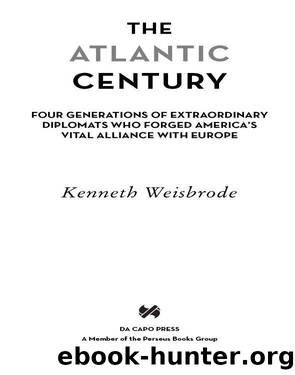The Atlantic Century by Kenneth Weisbrode

Author:Kenneth Weisbrode
Language: eng
Format: epub
Publisher: Da Capo Press
DE GAULLE’S REBUFF to NATO in 1966, as discussed earlier, was more show than substance and, thanks in good part to President Johnson’s instincts, did not lead to a permanent rupture. Military cooperation would continue quietly and continuously.32 By 1973, this had taken on a deeper dimension as France and the United States established a significant program of joint cooperation in nuclear weapons technology. According to political scientist Richard Ullman, who broke the story in 1989, the deal originated in talks between Nixon, Kissinger, and French foreign minister Michel Jobert soon after Georges Pompidou entered office. Its principal aims were to underpin Nixon’s policy of rapprochement with something tangible and to help offset residual European fears of a Soviet-American nuclear condominium as well as a countervailing concern in the United States that the British and French might cooperate too closely behind American backs.33 But Kissinger was never a great fan of the program and was often given to doubts. For one thing, his relationship with Jobert bordered on the dismal: “[Y]ou have always chosen me as your foil from the beginning,” he told him in December 1973. And he appeared to worry that the program would take on a bureaucratic life of its own, not only moving beyond his control but also serving the interests of rivals in the Pentagon and the intelligence agencies.34 He complained in late 1975, “We paid ten years for McNamara. He wanted all nuclear weapons under U.S. control. He is in part responsible for de Gaulle.”35 The only thing worse, at least for the dumbbellists, would have been a tilting of the balance too far in de Gaulle’s favor.
More interesting than the popularity of the program was the way it evolved and, like MBFR, the procedural precedents it set. At the time, it was called “negative guidance”: The French would pass along the kinds of techniques and designs they were advancing, and American officials would “wink and nod,” while subordinating responsibility for most of the actual exchanges to technical teams under the combined direction of nuclear experts Johnny Foster and Jean-Laurens Delpech. A similar method was used to retain the participation of French troops in NATO under the guise of informal talks and visits by American commanders.36 If this was not disengagement, it certainly was a different, more sotto voce, style of engagement reminiscent of Gibson, Camp, and Bruce. Again, as in the MBFR negotiations, the French nuclear deal was an imperfect arrangement of convenience that came from a mixture of motives. It bought time, and some good favor, but did not transform the transatlantic relationship in any drastic way. Yet it had the paradoxical effect of affirming the post-MLF displacement of major military questions from bilateral agendas, converting them into lower-level political, or even administrative, issues. When Art Hartman went to France as ambassador in 1977, he was told, without being given any details, that the “agreements” were still in place and that he should merely alert the French accordingly.37
For better or worse, then,
Download
This site does not store any files on its server. We only index and link to content provided by other sites. Please contact the content providers to delete copyright contents if any and email us, we'll remove relevant links or contents immediately.
| Arms Control | Diplomacy |
| Security | Trades & Tariffs |
| Treaties | African |
| Asian | Australian & Oceanian |
| Canadian | Caribbean & Latin American |
| European | Middle Eastern |
| Russian & Former Soviet Union |
The Secret History by Donna Tartt(16627)
The Social Justice Warrior Handbook by Lisa De Pasquale(11489)
Thirteen Reasons Why by Jay Asher(7788)
This Is How You Lose Her by Junot Diaz(5774)
Weapons of Math Destruction by Cathy O'Neil(5038)
Zero to One by Peter Thiel(4824)
The Myth of the Strong Leader by Archie Brown(4789)
Promise Me, Dad by Joe Biden(4449)
Beartown by Fredrik Backman(4419)
Stone's Rules by Roger Stone(4416)
How Democracies Die by Steven Levitsky & Daniel Ziblatt(4399)
The Fire Next Time by James Baldwin(4343)
100 Deadly Skills by Clint Emerson(4079)
A Higher Loyalty: Truth, Lies, and Leadership by James Comey(4033)
Rise and Kill First by Ronen Bergman(4012)
The David Icke Guide to the Global Conspiracy (and how to end it) by David Icke(3883)
The Farm by Tom Rob Smith(3872)
Secrecy World by Jake Bernstein(3783)
The Doomsday Machine by Daniel Ellsberg(3731)
